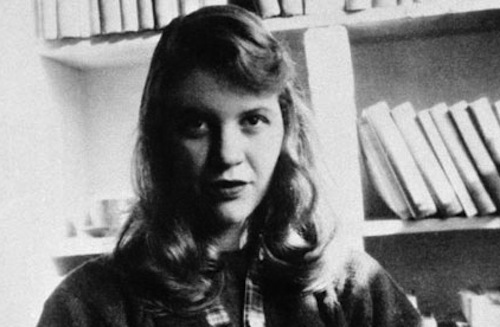Sylvia Plath's 'Nick and the Candlestick'

Virtuosity, sheer eloquence, in great work has its own meanings: in the best Shakespeare sonnets, as a kind of sexual display or gift to the courted person, with the acrobatic wit amplifying courtship with excellence. In Keats's “Ode to a Nightingale” the verbal richness is like the banner or ceremonial sword of acknowledged mortality, establishing the tragic beauty of individual, conscious creatures who die. In Elizabeth Bishop's “In the Waiting Room,” the poem’s verbal fluency, like superfine oil penetrating rock, emphasizes how imagination enters every experience, presiding over ordinary life simultaneously with “rivulets of fire.”
(Virtuosity without such meaning resembles what athletes call “hot-dogging” or “showboating.” In disgust with such writing, Paul Verlaine in his poem “Art poétique” advises poets to take eloquence and wring its neck.)
Sylvia Plath's “Nick and the Candlestick” deploys a meaningful, tremendously abundant, imagination. An orchestral volume of images expresses the mysterious bond of loving wonder, at once earthen and ethereal, toward an infant.
In a video at www.favoritepoem.org, this poem is read and briefly discussed by Seph Rodney, who is, as he says, “a Jamaican immigrant,” a person quite different, in external ways he specifies, from Sylvia Plath. Rodney's reading of the poem is intense but understated. For me, his respect for harmonic patterns of vowel and consonant and for the melody of syntax, represents—embodies, precisely—the feeling of significant eloquence, formal excellence with meaning.
An urgent, even fearful element in the poet’s love for a helpless baby drives the pinwheel of energy that sparks out phrases like “bat airs,” “plums,” “calcium icicles,” “piranha religion,” “the last of Victoriana,” and “mercuric/ atoms”—all cohering within one compact lyrical space.
I hesitated awhile to present this poem for discussion, because of the biographical background, the sad end of Plath's son Nicholas. My own feelings about such things aside, there was the practical consideration that biography might over-weigh discussion of the poem.
That concern is one reason I call attention to a video of someone reading the poem aloud. The presentation of the poem in a voice not the poet's—and the voice of a reader, not a scholar or actor—helps remind me of the live reality of the poem itself, as a great choreography of mind and emotion, in breath.
[Editor's Note: Please head to Robert Pinsky's Poetry Forum for a discussion of Sylvia Path's "Nick and the Candlestick," moderated by Robert Pinsky.]
Robert Pinsky is one of America’s foremost poet-critics. He earned his BA from Rutgers University in...
Read Full Biography

